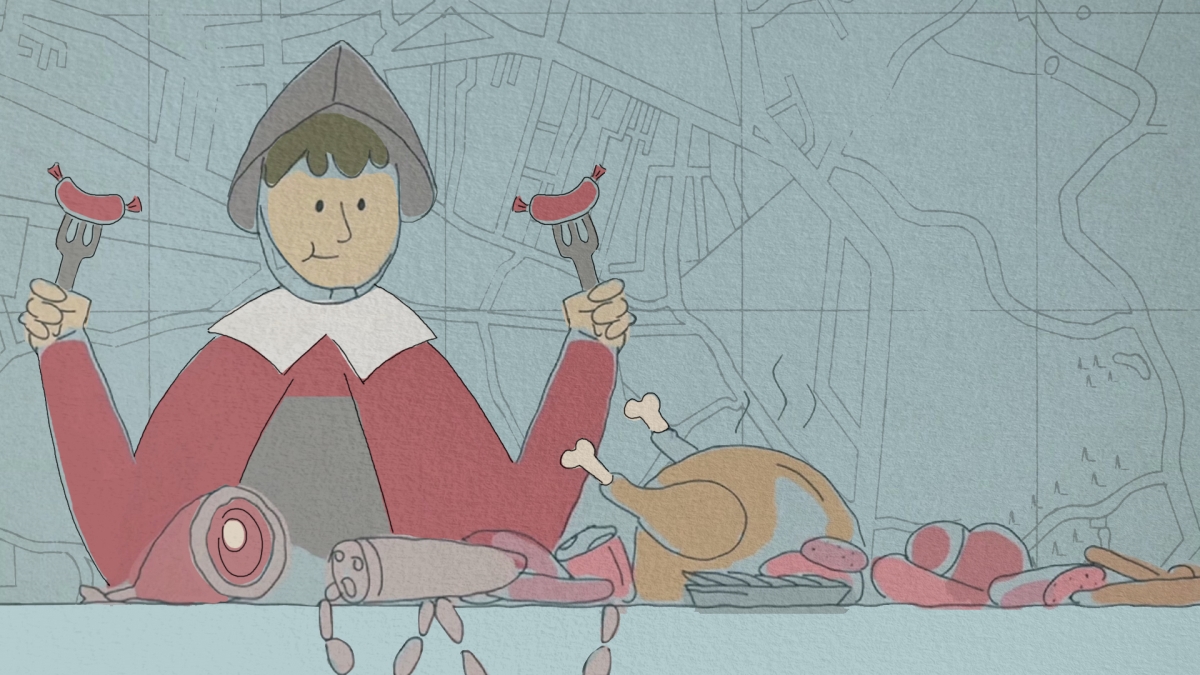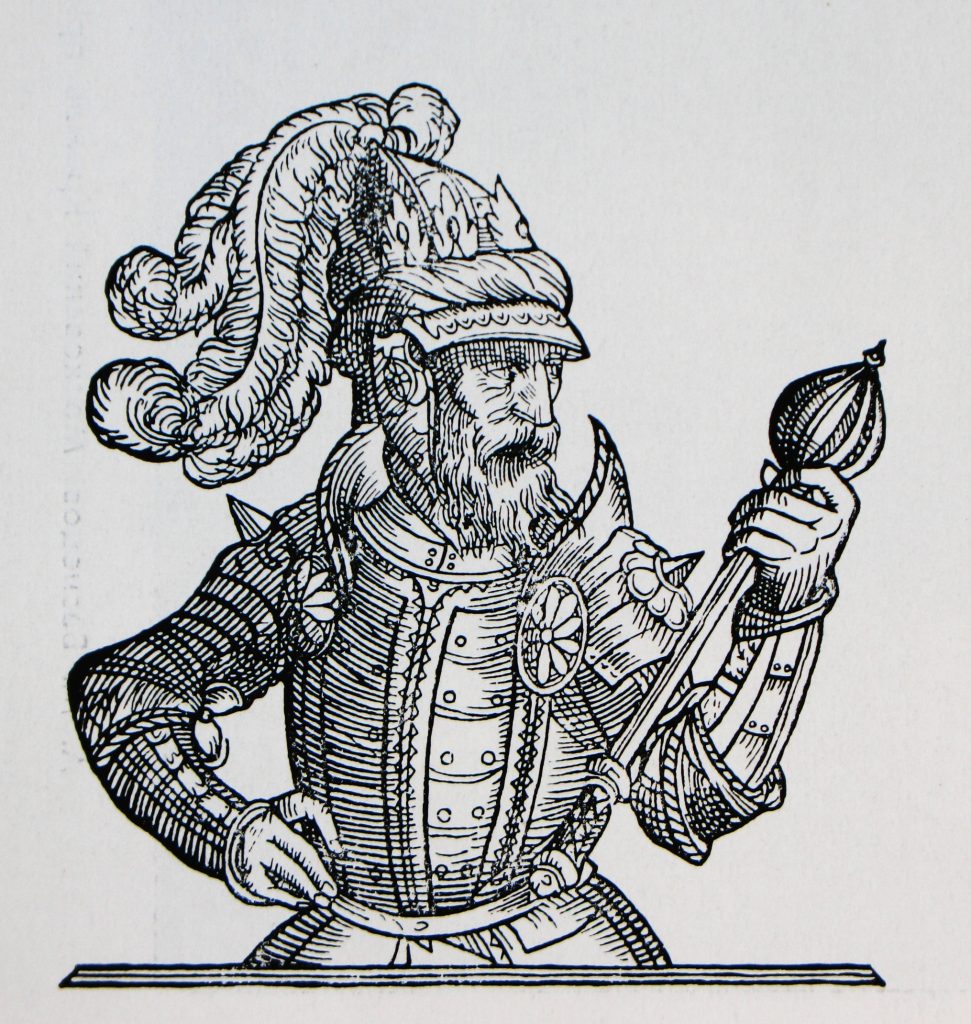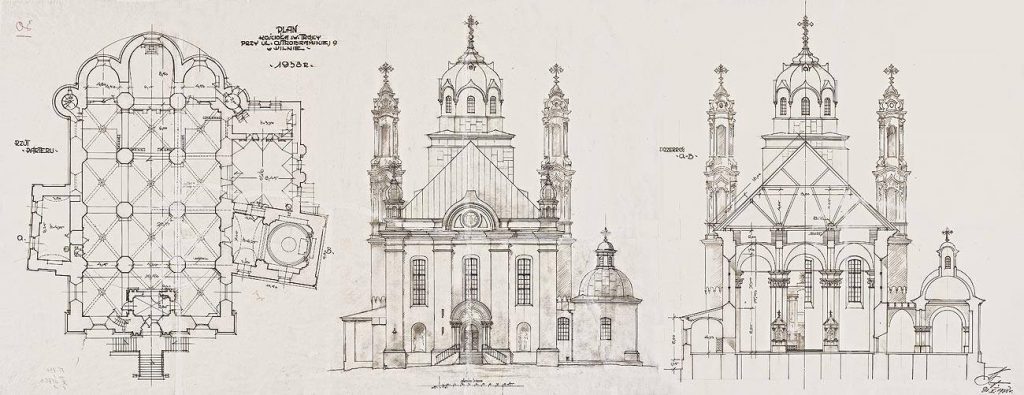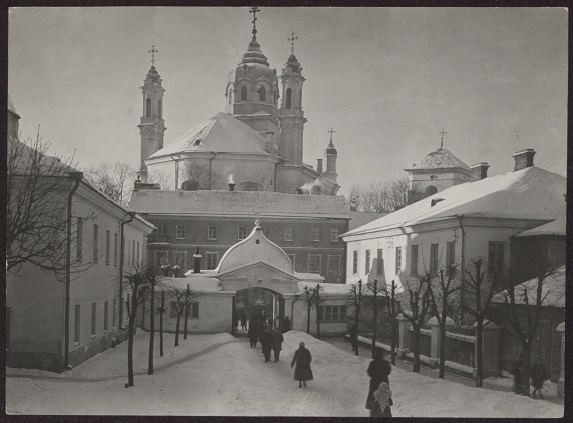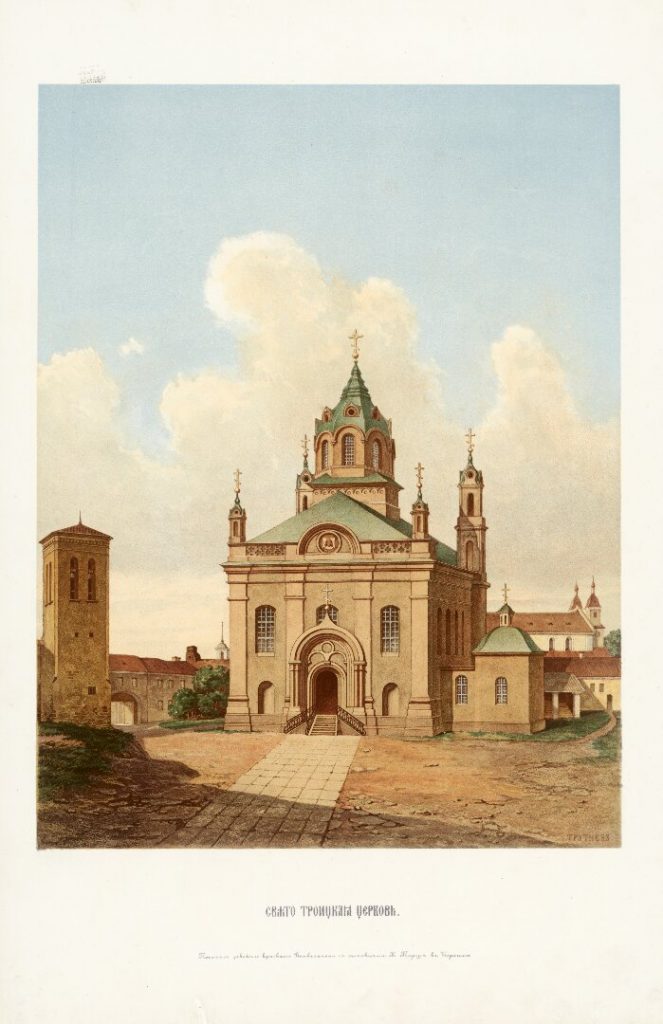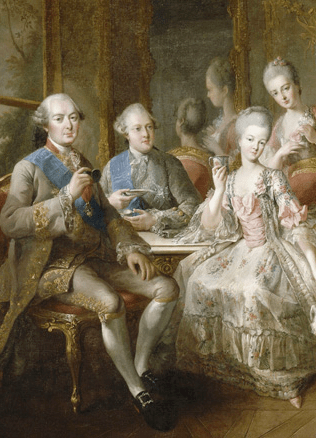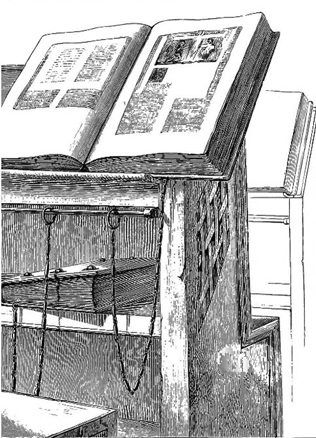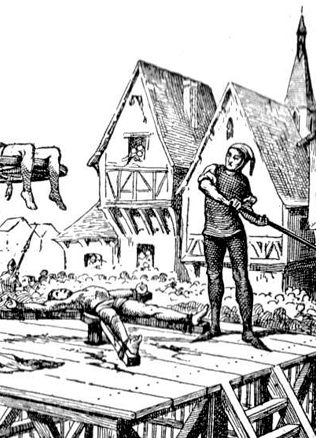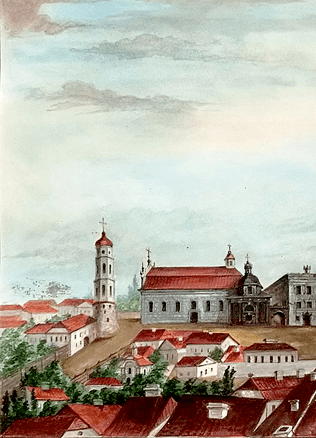When Refusal to Eat Meat Led to Death
Right after Lithuanians board a train or bus, expect to smell sausages, meat, and cucumbers. And as soon as spring arrives, everyone rushes to the lakesides to open the grilling season.
“
The rich, however, could afford eating meat almost daily already centuries ago, but peasants usually had to wait for a very special occasion, such as a wedding party.
Lithuanians’ love of meat goes back a long way. This does not make them unique, although for nine out of ten Europeans hunger or lack of food was an everyday reality until the 11th century. The shadow of famine began receding only in the 10th century, when Europeans started growing more beans. Yet the abundance of meat enjoyed in the Western world today, still remained a dream for the distant future.
The rich, however, could afford eating meat almost daily already centuries ago, but peasants usually had to wait for a very special occasion, such as a wedding party.
Meat on the table, friends at the table
Fried meat and drinks that go with it was more than a banal self-indulgence. it was an integral part of life of the rich and the mighty. Sharing a meal in the presence of the king was an exceptional honour. Unsurprisingly, competition for a more prestigious seat could become fierce.
“
Big feasts were also important in old Lithuania, particularly since most rulers were passionate hunters. After all, Gediminas founded Vilnius after a successful hunt, followed by a plentiful feast and a memorable dream.
Liutprand, the bishop of Cremona and envoy of Holy Roman Emperor Otto I, reported to him the great grievance Byzantine Emperor Nikephoros inflicted by offering Liutprand a place at the table far from himself and – what a disgrace! – next to a Bulgarian envoy who, dressed in a fur coat, adorned with chains, and shaven in the style of nomad Hungarians, was not even a Christian. The disgruntled bishop made it clear that the disrespect he was shown was an insult to Emperor Otto I.
Big feasts were also important in old Lithuania, particularly since most rulers were passionate hunters. After all, Gediminas founded Vilnius after a successful hunt, followed by a plentiful feast and a memorable dream.
Do You Know?
Presumably, the life of pagan Lithuanian rulers was more fun than that of their counterparts ruling over the Christian lands in at least one aspect. For Christians were obliged to fast. Even Charlemagne, famous for his love of hunt and meat, could not ignore the fast. Thus, while people of Christian Europe abstained during the Advent and Lent, the smell of fried meat spread beyond the walls of the Lower Castle in Vilnius.
This caused conflicts, some of which even entered historical documents.
John and Anthony will not eat meat
During one feast, around 1347, the Grand Duke Algirdas noticed two men unusual in their looks and behaviour. They did not shave their beards, wore their hair long, avoided excessive amusement, and, imagine this ‒ abstained from meat.
Turns out, they were brothers in grand duke’s service that were recently baptized by Nestor, an Orthodox priest residing in Vilnius. Since becoming Christians, they went by Anthony and John and followed Christian customs. And since that feast took place during the fast, both men refused meat even at the order of their ruler.
“
Public executions were carried out further away from the castle district, nearby the present-day Gates of Dawn, in the place where the Greek Catholic church of St. Trinity now stands.
Persuaded neither by pleas nor threats, the brothers ended up in prison, possibly a basement of one of the towers of the Lower Castle. John, the elder of the brothers, soon gave in and was reinstated in his court duties, although, deep in his heart, he harboured the Christian faith. Anthony, however, did not give up, and repudiated his weak-willed broth.
John’ freedom soon turned sour because pagans and Christians alike despised him for his lack of fortitude. When, during another ducal party, he once again confessed his faith and refused meat, he joined his brother in the dungeon, where both of them thanked God for their suffering in the name of Christ. Eventually, their persistence led them to the gallows.
Public executions were carried out further away from the castle district, nearby the present-day Gates of Dawn, in the place where the Greek Catholic church of St. Trinity now stands.
Three days of torture for a refusal of meat
These two deaths did not deter Kruglets, yet another man from Algirdas’ court. He was still a teenager and his beard barely showed, but that was enough to raise Algirdas’ suspicion. Once he learned that Kruglets was secretly baptized, Algirdas was overcome with blind rage. Even more so, since Kruglets too refused rule’s hospitality for some petty fast!
The description of Kruglets’s torture is full of harrowing details. The grand duke “bursted into rage and ordered to beat him with canes. And so it came to pass, but the martyr, mercilessly beaten by the people, did not shed a tear or released a moan but thanked God for giving him the grace of sharing in His suffering. Algirdas’ wrath grew, he ordered bringing plenty of cold water and pouring it into his mouth until full. As those who were there said, it was an extremely severe punishment because it was cold. When, even after all this, he still did not want to even touch the meat, the judge ordered him the most severe torture, that of breaking the legs and peeling [the skin] from the heels to the knees. He then ordered the hair to be torn off his head with skin, his nose and ears cut off. Kruglets suffered for three days, yet it seemed like he did not feel any pain at all as he talked to his fellow Christians who wept and lamented over him. The torturer then ordered to hang him. Severely maimed, helpless, not only did he not resist, but he looked joyful and thanked his executors, as if he had not suffered anything painful, once they approached the pine tree, he was hanged on his neck and gave his soul to God on the thirteenth day of December, and no animal came near him throughout the three days his body hanged there. From there the newly enlightened sons of the torturer removed his honourable remains at night in secret and, after traveling covertly with some pious men for three days, buried him with honour together with the above-mentioned holy martyrs, who perform famous miracles and heal.”
“
The fact that duke Algirdas softened his stance by the end of his life might seem a little surprising. Around 1374 he allowed a wooden church to be built where the execution had taken place. By sentencing them to death, Algirdas could not have foreseen that his disobedient courtiers would become holy Orthodox martyrs.
The fact that duke Algirdas softened his stance by the end of his life might seem a little surprising. Around 1374 he allowed a wooden church to be built where the execution had taken place. By sentencing them to death, Algirdas could not have foreseen that his disobedient courtiers would become holy Orthodox martyrs.
Darius Baronas
